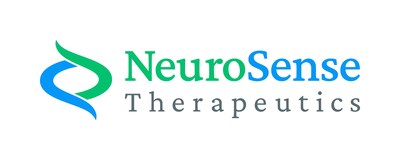NeuroSense to Present at the ALS and Alzheimer's Disease at AD/PD™ 2023 Advances in Science & Therapy Conference
NeuroSense Therapeutics (NASDAQ: NRSN) announced that Dr. Shiran Zimri will present findings related to PrimeC at the AD/PD 2023 Conference in Gothenburg, Sweden, from March 28 - April 1, 2023. PrimeC is currently in Phase 2b trials for ALS, with topline results anticipated in H2 2023. Initial studies show PrimeC's efficacy in improving ALS-related biomarkers and tolerability. Additionally, a Phase 2 proof-of-concept study for Alzheimer's Disease is set to commence in H1 2023, focusing on the combined therapeutic strategy using ciprofloxacin and celecoxib, which may show promise in treating AD based on biomarker detections.
- None.
- None.
- Biomarkers show potential efficacy
- PrimeC is currently being evaluated for the treatment of ALS in a Phase 2b study with topline results expected in H2 2023
- Phase 2 double-blind proof-of-concept AD study is expected to commence in H1 2023

Amyotrophic Lateral Sclerosis (ALS) Lecture
Title: Shifting the paradigm–PrimeC: A potential disease modifying treatment for neurodegenerative disorders driven by novel biomarkers measuring mechanism of action
Findings: PrimeC has demonstrated efficacy in pre-clinical models of ALS and was shown to be safe and tolerable in a Phase 2a clinical trial, with clinical signals of efficacy and significant changes revealed in ALS-related biomarkers. The synergistic mode of action of PrimeC as a combination therapy in ALS was measured in ALS-related biomarkers in neuronal derived exosomes (NDEs). Significant differences in ALS-related biomarkers were detected in people with ALS when compared to controls. Biomarkers related to inflammation, miRNA regulation, autophagy, and lysosomal trafficking were evaluated. Significant changes were observed in key ALS-related biomarkers following treatment with PrimeC.
PrimeC is currently being evaluated for the treatment of ALS in a Phase 2b study. Topline results are expected in H2 2023.
Alzheimer's Disease (AD) Poster
Title: Combination of ciprofloxacin/celecoxib as a Novel Therapeutic Strategy for Alzheimer's Disease
Findings: In order to assess and characterize the relevance of NeuroSense's combination therapy (ciprofloxacin and celecoxib) as a potential treatment for AD, a biomarker discovery study was conducted utilizing NDEs extracted from the plasma of people living with AD vs neurologically healthy controls. Hallmarks of AD were detected, such as increased levels of amyloid β 42, tau phosphorylation, and TDP-43 in people living with AD, when compared to the healthy control group. Elevated levels of TDP-43 suggest potential efficacy of NeuroSense's combination therapy in AD.
A Phase 2 double-blind proof-of-concept AD study is expected to commence in H1 2023.
About PrimeC
PrimeC, NeuroSense's lead drug candidate, is a novel extended-release oral formulation composed of a unique fixed-dose combination of two FDA-approved drugs: ciprofloxacin and celecoxib. PrimeC is designed to synergistically target several key mechanisms of amyotrophic lateral sclerosis (ALS) that contribute to motor neuron degeneration, inflammation, iron accumulation and impaired RNA regulation to potentially inhibit the progression of ALS. NeuroSense completed a Phase 2a clinical study which successfully met its safety and efficacy endpoints including reducing functional and respiratory deterioration and statistically significant changes in ALS-related biological markers indicating PrimeC's biological activity. Through a collaboration with
About Alzheimer's Disease
Alzheimer's disease (AD) is the most common form of progressive dementia, affecting 5
About TDP-43
Transactive response DNA binding protein of 43 kDa (TDP-43) is involved in regulation of gene expression. AD patients with TDP-43 pathology have increased severity of cognitive impairment compared to those without TDP-43 pathology. Additionally, the strongest genetic risk factor for AD, apolipoprotein E4 (APOE4), is associated with increased frequency of TDP-43 pathology.[1]
About NDEs
NeuroSense's biomarker study utilized neuronal-derived exosomes (NDEs) extracted from plasma. NDEs are small extracellular vesicles (EVs) generated by neurons that encapsulate a variety of molecules such as proteins, nucleic acids, and metabolites. ExoSORT™ by NeuroDex was used to identify NDEs in this biomarker study. Identification of NDEs and their cargo in body fluids can facilitate the discovery of new biomarkers for prognosis and therapy, as these vesicles can pass the blood-brain barrier (BBB) and provide a depiction of the current physiological status of neurons in the brain.
About NeuroSense
For additional information, we invite you to visit our website and follow us on LinkedIn and Twitter.
Forward-Looking Statements
This press release contains "forward-looking statements" that are subject to substantial risks and uncertainties. All statements, other than statements of historical fact, contained in this press release are forward-looking statements. Forward-looking statements contained in this press release may be identified by the use of words such as "anticipate," "believe," "contemplate," "could," "estimate," "expect," "intend," "seek," "may," "might," "plan," "potential," "predict," "project," "target," "aim," "should," "will" "would," or the negative of these words or other similar expressions, although not all forward-looking statements contain these words. Forward-looking statements are based on
[1] Meneses, A., Koga, S., O'Leary, J. et al. TDP-43 Pathology in Alzheimer's Disease. Mol Neurodegeneration 16, 84 (2021). https://doi.org/10.1186/s13024-021-00503-x
Logo: https://mma.prnewswire.com/media/1707291/NeuroSense_Therapeutics_Logo.jpg
![]() View original content:https://www.prnewswire.com/news-releases/neurosense-to-present-at-the-als-and-alzheimers-disease-at--adpd-2023-advances-in-science--therapy-conference-301779867.html
View original content:https://www.prnewswire.com/news-releases/neurosense-to-present-at-the-als-and-alzheimers-disease-at--adpd-2023-advances-in-science--therapy-conference-301779867.html
SOURCE NeuroSense







